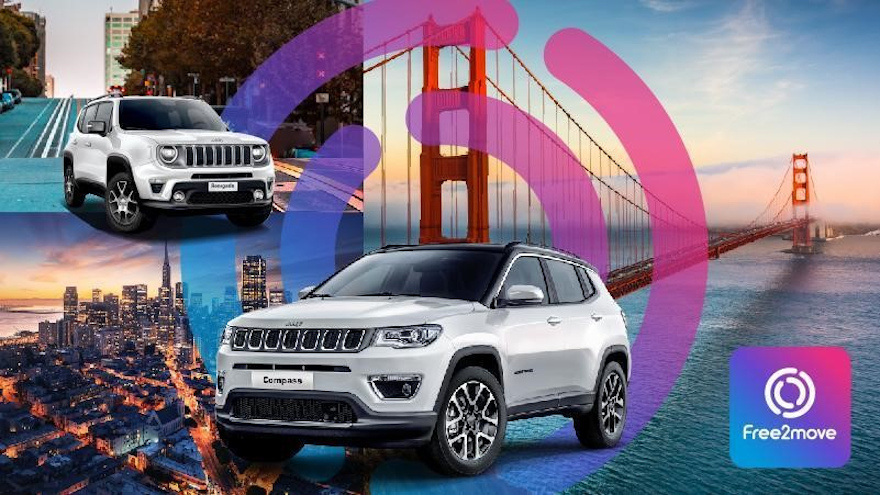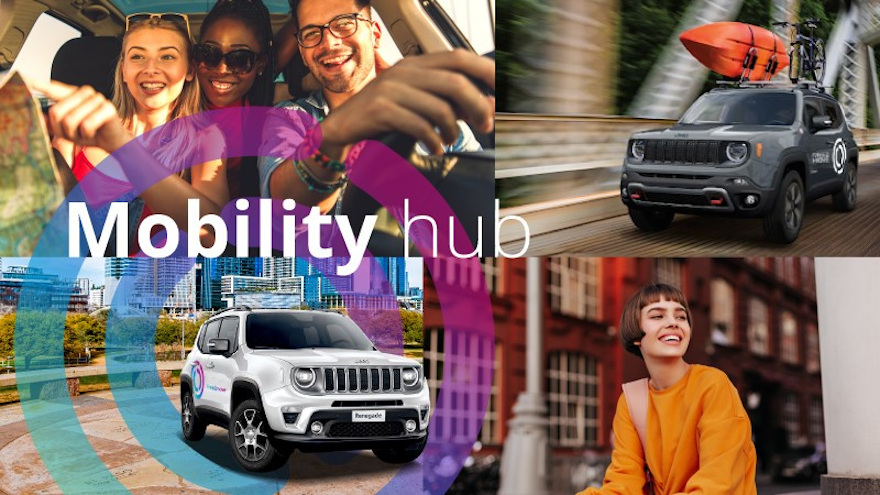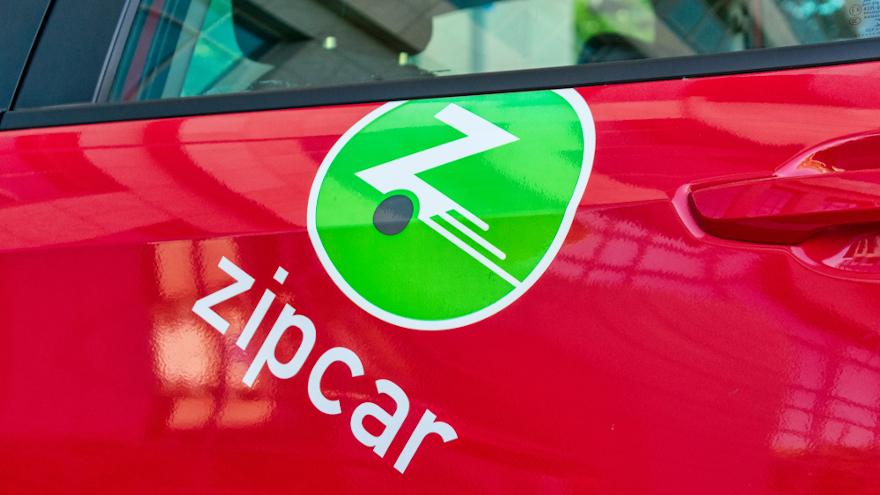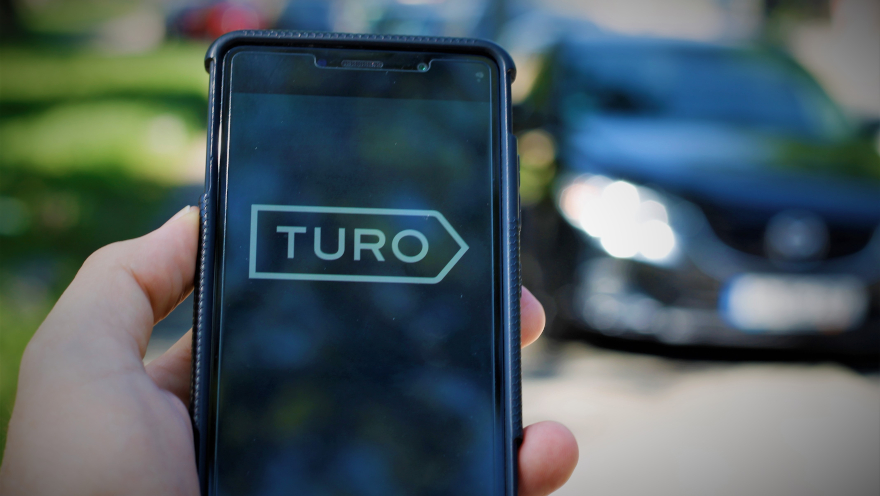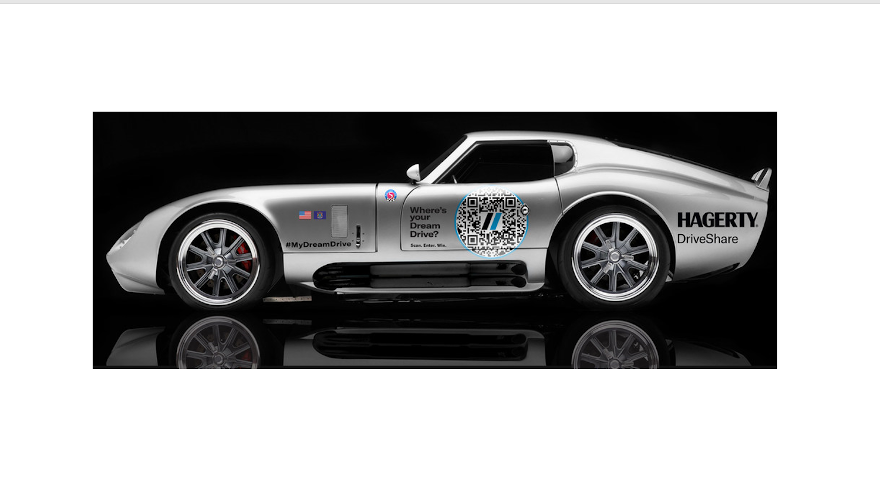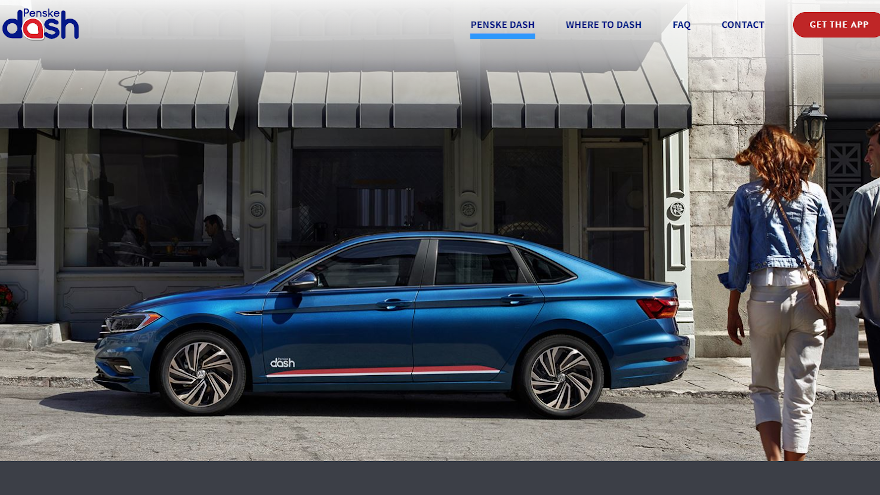Car sharing platform Turo announced this week that it has publicly filed a registration statement on Form S-1 with the Securities and Exchange Commission relating to the proposed initial public offering of its common stock.
Despite sustaining a net loss of $97.1 million during 2020, Turo believes company stock is attractive because of what it dubbed through its prospectus submitted to the SEC as “the Turo flywheel effect.”
While the number of shares to be offered and the price range for the proposed offering have not yet been determined, Turo said it intends to list its common stock on the New York Stock Exchange under the symbol TURO.
“Our platform benefits from the self-reinforcing value proposition between hosts and guests,” Turo said in the prospectus available online. “Hosts are engaged with our brand and platform due to the unique income generation opportunity we provide, and they become increasingly engaged as they earn more. As existing hosts grow and new hosts join, our value proposition to guests strengthens as guests have access to a more unique selection of vehicles in more locations.
“The unique inventory of vehicles not available anywhere else, along with the seamless experience we offer guests, spurs organic, word-of-mouth growth, and repeat behavior,” the company continued. “Growth in demand leads to greater income opportunities for our hosts, which further strengthens our host value proposition and, in turn, encourages existing hosts to grow and new hosts to join.
“As we scale and continue improving our offering, our guests book more trips which we leverage to generate data that powers our machine learning algorithms, such as data-driven pricing, search results ranking, and vehicle recommendations,” the company went on to say. “These algorithms improve our host and guest experience and make our business more profitable, resulting in reinvestments to further improve user experience and propel growth.”
Morgan Stanley and J.P. Morgan will act as lead book-running managers and as representatives of the underwriters for the proposed offering. Allen & Company and Citigroup are acting as book-running managers.
Cowen, D.A. Davidson & Co., Wolfe | Nomura Alliance, LionTree Advisors, Loop Capital Markets, Ramirez & Co., Inc., and Siebert Williams Shank are acting as co-managers for the proposed offering.
“The principal purposes of this offering are to increase our capitalization and financial flexibility and create a public market for our common stock,” Turo said in the prospectus. “We currently intend to use the net proceeds we receive from this offering for general corporate purposes, including working capital, operating expenses, and capital expenditures.
“We cannot specify with certainty all of the particular uses for the remaining net proceeds to us from this offering. We may also use a portion of the net proceeds for acquisitions of, or strategic investments in, complementary businesses, products, services, or technologies,” the company continued.
“We will have broad discretion over how we use the net proceeds from this offering. We intend to invest the net proceeds from the offering that are not used as described (in the prospectus) in investment-grade, interest-bearing instruments,” Turo went on to say.
Free2move is continuing to broaden the footprint of its car sharing services.
Last month, the company ventured into the Lone Star State. On Monday, Free2move announced availability in five of California’s largest cities, including San Francisco, San Diego, San Jose, Sacramento and Los Angeles.
Along with those five markets in the Golden State, as well as Austin, Texas — which generated more than 3,000 requests during the first month of service — Free2move also operates in Denver, Portland, Ore., and Washington D.C.
“Short-term car demand is on the rise,” Free2move said in a news release. “With the recent chip crisis, the waiting list for new vehicles has increased.
“As people try to live a more sustainable lifestyle, many are opting to explore bike or public transit as seasonal transit options, opting for vehicles at peak times throughout the year. Buying a car is the second biggest purchase a household will make, and people are considering alternative options to vehicle usage,” the company continued.
Vehicles are booked through the Free2move website for a 100% digital experience that includes the customization of the subscription and online payment with assistance available if needed. The service can be canceled at any time.
Free2move offers a large range of vehicles, including Jeep, Mercedes-Benz and Tesla, with a flat monthly fee including insurance, maintenance, 24/7 roadside assistance and free delivery.
After rolling out in the Northwest earlier this year, Free2move brought its car sharing services to the Lone Star State on Wednesday.
The company added Austin, Texas, to its list of mobility hubs. Austin residents already can see the Free2move fleet of 100 Jeep Renegade vehicles parked on the city streets.
And as of Wednesday, Free2move said Austin residents are able to book a Renegade through the Free2move App for a rental by the minute, by the day and by the month.
Free2move explained through a news release that it has prioritized Austin as a mobility hub thanks to the city’s commitment to bringing additional mobility services to its community.
“The Free2move fleet of Jeep Renegades are perfect for local residents to use as part of their daily urban transportation system and for visitors of Austin to use throughout the duration of their stay,” the company said.
“Free2move can be part of a park-and-ride system, and is equally as convenient for weekend getaways to San Antonio, Houston and Dallas. With all the concerts and events being held in Austin, the need for transportation is endless,” the company went on to say.
The Free2move Austin mobility hub will focus on:
• Carsharing and rent: With services ranging from minutes to up to seven days, users can access vehicles parked in the Free2move service area. Customers can leave the service area and pause their trip, as long as the trip ends within the designated service area. Parking, gas and insurance are included.
• Car on demand: For month-to-month subscription, without long-term commitment; the program includes all-inclusive service with maintenance, insurance and 24/7 assistance all in a single price. Cars will be delivered to the customer’s doorstep.
Free2move added that its Austin vehicle fleet will ramp up to 150 units over the next few weeks.
The company mentioned 72% of Free2move’s customers are under 40 years of age and 52% of Free2move customers use the service several times per month.
“Free2move is known for its simplicity of their service, and their ability to meet the needs of their clientele,” the company said. “With more than 50,000 university students in the Austin area, the Free2move customer base in this market is impressively large.”
Now along with Austin, Free2move services are available in Denver, Portland, Ore., and Washington D.C.
In addition to the B2C services, Free2move offers special offers for businesses including coupon codes to encourage employees to use the new mobility solution.
Zipcar is adding nearly 50 Zipcar vehicles to designated on-street parking spots across the City of Brotherly Love, as it builds on its partnership with the City of Philadelphia and the Philadelphia Parking Authority.
This expansion supports the goals of the new Philadelphia Transit Plan, which include reducing reliance on personal vehicles and increasing access to equitable, affordable, and sustainable forms of transportation for residents of the city. Zipcar has provided Philadelphia members with access to a vehicle since 2007.
Zipcar provides hundreds of vehicles across various Philadelphia neighborhoods, for pick-up and return.
“At Zipcar, we’re committed to making cities better places to live, and that starts with increasing access to smart, affordable mobility solutions that enhance how urban communities live and thrive,” Zipcar president Tracey Zhen said in a news release.
Zhen also said, “We are excited to partner with the city to provide the community with increased access to our Zipcar vehicles. We’re dedicated to helping residents get where they need to go with convenient, affordable and sustainable transportation.”
Zipcar said the partnership shows that it is committed to supporting the mobility needs of Philadelphians. The company sourced a 2020 survey of Philadelphia Zipcar members showing that 58% would like to see more vehicles parked on street. Seventy-three percent said it is more convenient and 58% said it makes vehicles easier to find.
The survey also showed that nearly 81% of Zipcar members do not own or lease a car. Nearly 42% say they have postponed buying or leasing a car because of their Zipcar membership.
Zipcar also sourced a University of California, Berkeley study showing that every Zipcar on the road eliminates the need for up to 13 personally owned vehicles.
"Car share reduced auto trips and parking demands in Philadelphia neighborhoods,” said Mike Carroll, deputy managing director for the Office of Transportation, Infrastructure, and Sustainability at the City of Philadelphia. “We are pleased that Zipcar has chosen to invest in Philadelphia and add to residents’ transportation choices.”
Philadelphia councilmember Jamie Gauthier, 3rd District, said car sharing like Zipcar can help expand access to car travel in an environmentally-friendly and equitable manner.
“I’m grateful that Zipcar is making this expansion a reality in our neighborhoods and supporting transit options here in the City of Philadelphia," Gauthier said.
Philadelphia Parking Authority executive director Scott Petri said the Philadelphia Parking Authority’s mission is to improve the quality of life for Philadelphia’s residents and visitors.
“We fulfill this mission by working with our transportation partners to institute appropriate policies to decrease congestion, improve economic opportunity, and support the economic vitality of Philadelphia,” Petri said.
Zipcar said its vehicles can be reserved for as little as an hour or for multiple days, for essential trips, travel beyond city limits, and visiting family and friends. A Zipcar membership includes gas, maintenance, insurance options, and up to 180 miles of driving per day.
In honor of Earth Day, car-sharing marketplace Turo said Thursday it has become the first car-sharing or car rental marketplace to offset 100% of its estimated global carbon emissions.
This commitment will offset emissions based on the total number of miles driven on Turo trips, and all emissions from its global office footprint.
The company said it is taking what it describes as an urgent next step in the fight against climate change. Turo said it seeks to help make the car-sharing industry more sustainable.
Turo is making the effort to reduce its carbon footprint at a time when the platform’s hosts are already adding many more electric vehicles.
To become carbon neutral, Turo will invest in emission-reduction projects such as a transportation efficiency project and two sustainable forestry projects, one in British Columbia and another in Alaska.
Turo said it is directly funding these projects to support the choices of the project owners to go further than what is required of them. Turo chose third-party-verified projects through its partner, Bluesource, a carbon offset developer. The projects Turo chose to support are located in U.S. and Canadian markets.
“Building on the organic growth of electric vehicles shared on Turo and our core mission of putting the world’s existing resources to better use, making the Turo marketplace carbon neutral is an important step towards making travel more sustainable, especially as the world emerges from the pandemic and car travel is widely considered the safest form of travel,” Turo chief executive officer Andre Haddad said in a news release.
Haddad also said, “We’re proud to double down on our commitment to promote a greener future, and to continue championing EV and hybrid adoption.”
“Bluesource is very excited to partner with the Turo team as they continue their industry-leading climate commitments and embark on this offsetting program,” said Bluesource vice president Ben Massie.
The Daytona Coupe is a Factory Five replica of the original 1965 World Championship Daytona Coupe.
Automotive lifestyle company Hagerty owns the vehicle and says it “captures the look and feel of the original 200 mph GT cars.” But it says that like all Factory Five designs, the vehicle is “more reliable and comfortable.”
Now, Hagerty’s DriveShare by Hagerty, which describes itself as a nationwide peer-to-peer car-sharing platform that connects “people who own great cars with people who want to rent them,” is leading a contest for licensed drivers who share their vision of a “Dream Drive.”
DriveShare features more than 4,000 vehicles across the United States, including classic cars and trucks, modern muscle cars, luxury vehicles and SUVs. DriveShare is available for Android, iOS and at www.driveshare.com.
Contest participants will be eligible to win a road trip down California’s famed Highway 1 in a Daytona Coupe by Factory Five, courtesy of DriveShare by Hagerty.
Applicants must be U.S. citizens, age 25 or older.
Entries for the four-day, three-night road trip can be submitted from March 5 through Jan. 31, 2021, at www.driveshare.com/dreamdrive, by mail, or by scanning the QR code affixed to the Factory Five Daytona Coupe.
The Daytona Coupe will be on display at the following events:
— 2020 Amelia Island Concours d’Elegance (March 6-7)
— 2020 Greenwich Concours d’Elegance (May 30-31)
— 2020 Concours d’Elegance of America (July 24-26)
— 2020 Pebble Beach Concours d’Elegance (August 16)
— 2021 Arizona Auction Week (January)
Applicants can complete mail entries by submitting a postcard with the entrant's name, address, phone number and email address to Hagerty Dream Drive Promotion, Attn: Tara Hurlin, P.O. Box 1303, Traverse City, Mich. 49684.
All entries require a response to the question: "Where is your Dream Drive?" Entries are limited to one per person.
Global Market Insights released a report this summer indicating the valuation of the car-sharing market is expected to surge past $12 billion by 2024.
And being a diversified automotive company, Penske is making sure it's part of that growth.
This week, the company announced investment in Penske Dash, a carsharing service launching in Washington, D.C., and Arlington, Va.
“Penske Dash furthers our commitment to embrace new technologies while addressing the mobility needs for our consumers,” Penske chairman Roger Penske said in a news release.
“As Mobility-as-a-Service and the sharing economy develop, we will continue to leverage the expertise of our strong partners and our expertise in transportation services to remain at the forefront of new leading transportation solutions,” Penske continued.
Penske Dash can provide members with convenient, on-demand access to Volkswagen Jetta SE vehicles that may be rented by the minute, hour or day through the Penske Dash app. Rental rates are all-inclusive, covering fuel, parking and insurance. Penske Dash members are supported with 24/7 access to a U.S.-based call center and a local fleet operations team.
The company indicated vehicles will be available on a free-floating basis in Arlington, Va., allowing Penske Dash members to make one-way trips by initiating and completing rentals at any unrestricted public parking spot. To provide additional parking options for members, Penske Dash has secured reserved parking options at centrally located Colonial Parking garages in Washington, D.C.
Penske Dash is partnering with Ridecell for its technology capabilities and Volkswagen for its OEM resources. Last May, Cox Automotive was the lead investor in a $28.61 million Series B funding round for Ridecell, a software platform used to run mobility services like carsharing, ridesharing and autonomous fleet management.
Penske officials said both Ridecell and VW bring leading capabilities and expertise in key areas of the Penske Dash operations.
“We are excited to bring a new mobility option to Washington, D.C., and Arlington, bolstered by Penske’s longstanding commitment to quality and customer service,” said Michael Montri, chief operating officer of Penske Dash. “From the technology used, to the upkeep of our vehicles, to customer and roadside support, every facet of Penske Dash was designed to provide our members with the highest-quality and most consistent carsharing experience possible.
“From here, we plan to evolve with the needs of these communities, listening closely to their feedback, to not only create but maintain a best-in-class carsharing service,” Montri continued.
Local operations will be led by Paul DeLong, who previously served as president and chief executive officer of Car2Go North America and brings with him expertise in carsharing operations and the specific launch markets.
DeLong said, “We believe Washington, D.C., and Arlington are ideal markets to launch Penske Dash due to the commitment of each municipality to provide flexible mobility choices, and the local residents’ familiarity with the benefits of carsharing.”
Several times during last week’s Automotive Intelligence Summit the topic of car-sharing surfaced, examining how dealerships can capitalize on this developing phenomenon and ways finance companies and fintech developers can streamline services and mitigate risk.
A variety of industry participants have their collective antennae raised about this topic stemming from robust figures mentioned by firms such as Global Market Insights, which recently released a report indicating the valuation of the car-sharing market by 2024 is expected to surge past $12 billion.
Analysts believe part of the reason for the growth is stringent government regulations and norms associated with the emissions of greenhouse gases. Delaware-based Global Market Insights made that assertion in its report that can be downloaded here.
The firm noted major car-sharing market players include:
— Autolib
— Car2Go
— Cambio CarSharing
— Cityhop
— Communauto
— DriveNow
— Getaround
— CarShare Australia
— Carrotshare
— Ekar Fz
— Hertz
— Hour Car
— Locomute
— Lyft
— Mobility carsharing
— Modo Co-operative
— Orix
— Peg City Car
— Regina Car Share Co-operative
— Turo
— Zipcar
“The round-trip car-sharing market is projected to undergo wide adoption due to the lower costs for long-distance trips as the fares are based on distance traveled. The model allows a user to pick and return a shared vehicle at the same station that is supported by mobile applications or a personal access card,” Global Market Insights said.
“The U.S. car-sharing market will grow exponentially led by incentives introduced by the government to promote the use of these services. The states in the country have enacted taxation regulations and legislation and incentives for companies providing these services,” the firm continued.
"P2P carsharing market is expected to witness high growth owing to the increasing number of people willing to rent out their idle cars on a short-term basis. Additionally, car owners are becoming progressively inclined toward earning money by renting it out rather than letting the car sit idle,” Global Market Insights went on to say.


